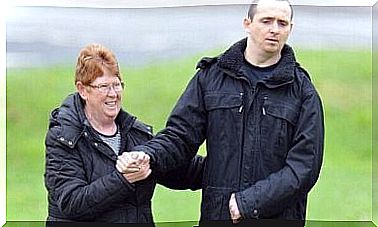From Being Too Kind To Being Controlling

Excessive behavior tends to be a sign of trouble. One of the resources the affected person uses is precisely to exaggerate a behavior to hide a latent problem. Although being too kind is considered a good quality, sometimes it is not.
It is very common for a kind person to expect something in return, even though they may deny it. On the other hand, it is possible that the desire to help is a mechanism for exercising control over other people’s behavior.
Another revealing sign of this is when the person trying to be too kind complains about themselves and how they are. They constantly express disappointment because people around them do not behave as they expect them to or are not “grateful enough”. Thus, excessive kindness can be a form of manipulation deep down.

To be too kind
You may have to somehow say that being too kind means ignoring your own needs and desires, which means that you sacrifice personal things to please another person. It also means living to help others and probably not admitting that you also need to be happy or to get help. Furthermore, this trait is most present in those who never stop trying to be the “hero” in some situations.
Experts in the case point out that the compulsive desire to help others may be due to a strong need for love. It is a very common behavior among those who did not get enough love in childhood, or who were not brought up to be independent people.
Somehow being too kind is often a strategy to “buy” the love and acceptance of others. That’s why they feel disappointed when others do not reciprocate. Then this leads us to complain about “giving too much” to people.
From empathy to control
Those who are too kind are seldom aware of the true motivations behind their desire to help. In their hearts, they feel that they actually care about other people’s well-being.
They are able to recognize pain in people around them and even feel bad when they see them suffer. However, there are two main problems with this. First, they never feel that kind of interest or kindness towards themselves. In fact, they volunteered for second place.
The second problem is that they want to control other people’s behavior. They want attention, gratitude or even public recognition for their actions. This is also the reason why it is common for them to feel that they have the right to control the lives of the people they help and they claim that right as a “payment” for what they did for these people.

Real help
Before you decide to be good to others, you must learn to be good to yourself. This is a necessary aspect to achieve a balance between the interests of others and your own. Therefore, make sure that the sacrifices you make for others adapt to your life, your needs and your limitations.
On the other hand , it is also good to explore your motivation to help others. As we mentioned earlier, analyzing this aspect can sometimes help you identify your own needs and use your help in a non-manipulative way.
In addition, the need to be needed often leads to code-dependent conditions, which are not good for those involved. The best way to help someone is by creating the conditions for that person to be independent; to help them become stronger. Do not encourage them to keep looking for your help, but to look for solutions instead.









